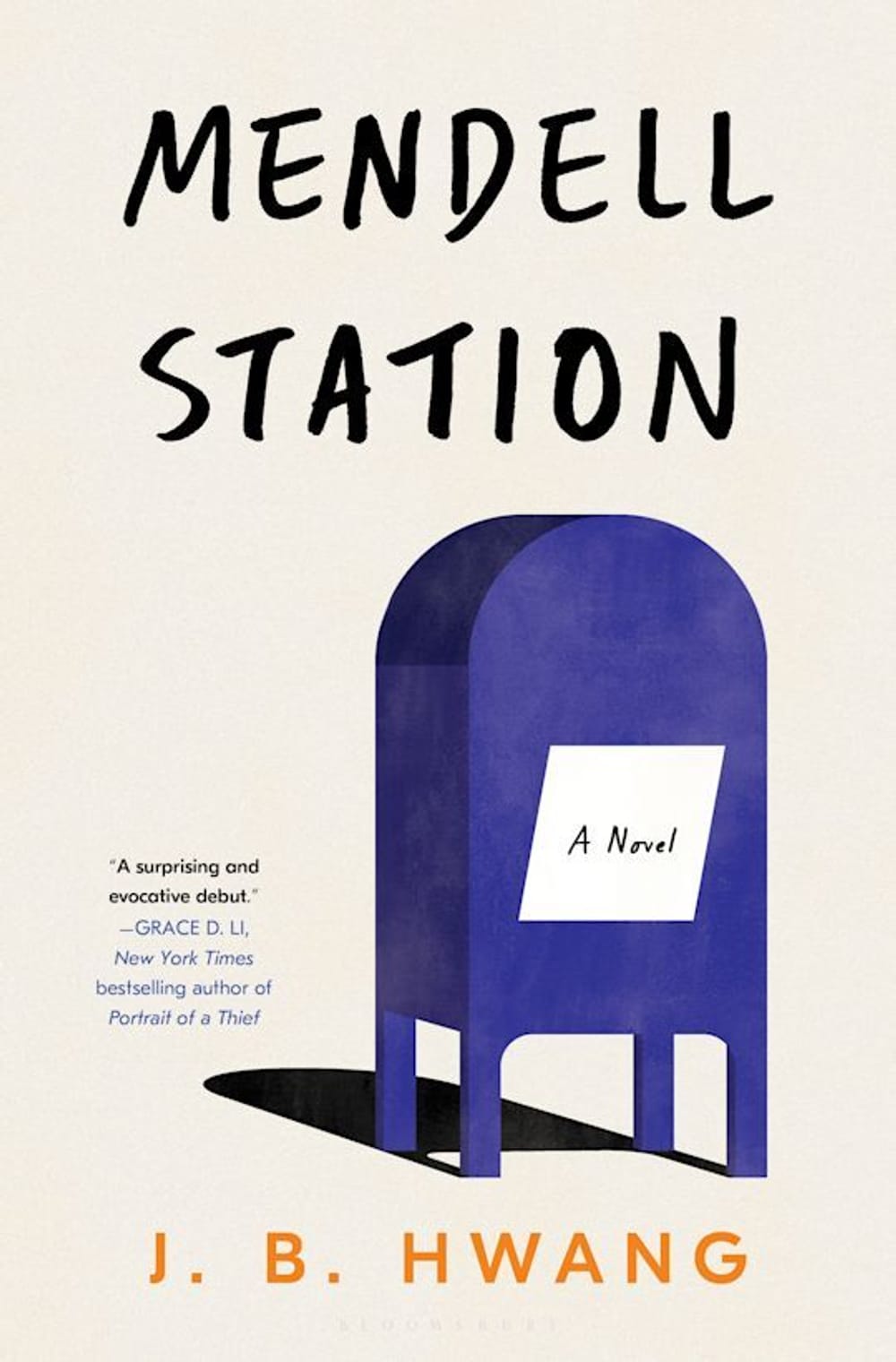Stay in the Loop
BSR publishes on a weekly schedule, with an email newsletter every Wednesday and Thursday morning. There’s no paywall, and subscribing is always free.
A touching story about grief, friendship, and working-class life in the pandemic
Mendell Station, by J.B. Hwang

Mendell Station, J.B. Hwang’s forthcoming debut novel, is a tender exploration of grief firmly seated in a gritty and realistic portrayal of working-class life, centered on the power and importance of female friendship.
It’s January 2020. Miriam is teaching in a Christian high school when her best friend, Esther, dies unexpectedly. Consumed by grief, Miriam experiences a crisis of faith. Unable to continue teaching a faith she no longer believes in, Miriam quits and becomes a post office employee. Through a series of flashbacks and letters written to her deceased friend, we explore Miriam and Esther’s relationship while Miriam learns the ropes of her new job in the present day.
This friendship forms the emotional core of Mendell Station. Miriam and Esther were fast friends upon their meeting as teenagers. While they both come from Korean immigrant families, their struggles are unique. Miriam’s father is disabled, her mother his caretaker, and their family struggles with poverty in a cramped apartment. When they first meet, Miriam is afraid of Esther’s judgment of her family’s dysfunction, but Esther just says with a sheepish smile, “Your family’s fucked-up, too.”
While outwardly prosperous, Esther’s family lives in fear of her father. Esther, a free spirit, is a contrast to the more serious and religious Miriam. Though Miriam and Esther weather squabbles, Hwang delicately shares the beauty, camaraderie, fierce loyalty, and care within the relationship. This resonates with my own experience of female friendships as an anchor, a saving grace, and life support during tough times.
Grief in working-class life
Mendell Station is also a realistic portrayal of working-class life. Life moves on during grief. Bills need to be paid. Mail needs to be delivered. Getting up, going to work, and delivering the ever-escalating piles of mail and packages is a never-ending, thankless task. While a lot of the world is sheltering in place, Miriam and her coworkers go from a somewhat manageable workload to one that feels impossible. We learn about the intricacies of a bureaucratic system with outdated equipment and endless regulations. While Miriam has to pay her dues as a newbie, the immigrant aunties and uncles at her postal station make the job less lonely, showing her tricks to make her job a little easier and helping her out.
Unquestionable faith?
I enjoyed Hwang’s exploration of Miriam’s crisis of faith, but I wish it had been explored more deeply. Some lines brilliantly capture the paradoxes and angst that come with questioning: “Esther didn’t believe in God, and unremitting thoughts of her in hell tortured me. Instead of providing comfort, my faith drove me insane.” Miriam’s mother finds solace and community in the Korean immigrant church. But instead of providing comfort to Miriam in her uncertainty, Miriam’s mother accuses her: “Sounds like you already decided to lose your faith.” Is faith that can’t be questioned really faith at all, or just indoctrination?
Overall, I enjoyed this slice-of-life book exploring the loneliness of grief and isolation during early Covid-19 days, while paying tribute to the strength, importance, and power of female friendship.
What, When, Where
Mendell Station. By J. B. Hwang. New York: Bloomsbury Publishing, July 22, 2025. 208 pages, hardcover; $26.99. Pre-order it here.
Sign up for our newsletter
All of the week's new articles, all in one place. Sign up for the free weekly BSR newsletters, and don't miss a conversation.

 Krista Mar
Krista Mar